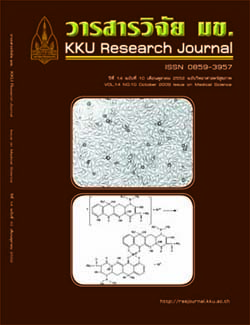Effectiveness of applying self-control theory and social support theory to develop condom usage behavior for homosexuals joining the Power of Violet group in Phatthalung province (Thai)
Main Article Content
Abstract
This research is quasi-experimental and aimed at studying the effectiveness of applying self-control theory and social support theory on condom usage behavior to homosexuals joining the Power of Violet group. The scores of the experimental group and those of the control group were compared after applying the public health program. Participants were randomly selected using simple sampling. 62 participants were equally divided into two groups which were experimental and control groups. The data was analyzed using descriptive statistics which were frequency, percentage, average, median, maximum, minimum and deductive statistics, namely the independent t-test.
The results of the study show that after the experiment on the experimental group and the control group, there was a difference with no statistical significance in their knowledge and average scores (p-value=0.134). The experimental group had higher scores in knowledge about using condoms than the control group by 0.5 marks (95% CI, between 0.1 to 1.6) In the attitude aspect, the average scores after the experiment were different with statistical significance (p-value=0.013). The scores of the experimental group were 3 marks higher than those of the control group (95% CI, between 0.6 and 5.4). In the condom usage aspect, before the experiment, the proportion of people using a condom every time they had sex in the control group was higher than that of the experimental group, at 54.8 and 16.1 respectively. After the experiment, the condom usage proportion of these groups was equal, at 74.2 percent.


